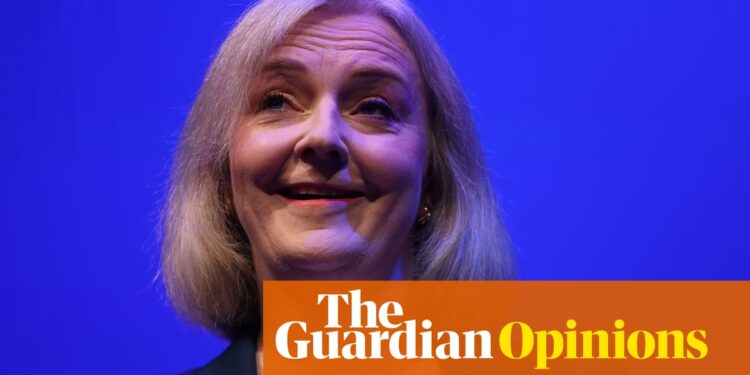The issue with getting caught up in the chaos conjured by megalomaniacs online and the wildfires raging in Los Angeles is that it distracts us from the rather troubling situation of Liz Truss.
Truss finds herself at the receiving end of a peculiar kind of injustice. The consensus seems to be that her tenure as Prime Minister was nothing short of disastrous for the economy, leading to her ousting by her own party. To make matters worse, this narrative is constantly reiterated, including by prominent figures.
Most recently, it has come to light that Truss has enlisted legal help and dispatched a detailed “cease and desist” letter to Keir Starmer. She demands he retracts his “false and defamatory” statements claiming she is responsible for crashing the economy. The letter spans six pages, a length that humorously suggests it might take as long to read as her actual tenure at No 10. Truss asserts that Starmer has damaged her reputation and contributed to her loss in South West Norfolk, maintaining that his words carry significant weight in her constituency, despite her 14-year incumbency.
The legal argument now pivots on whether it’s apt to say Truss “crashed” the economy. Truss’s lawyers argue that the economic fallout from her mini-budget did not trigger a GDP drop or spike in unemployment. Yet, this offers scant solace to those grappling with escalating mortgage costs and viewing basic vegetables as an indulgence. It raises broader questions: if you drive into a wall, do you call it a crash? Is it solely the driver’s fault, or should others share the blame? Would an insurance adjuster even call it a crash? And from Starmer’s stance, do political rhetoric and legal definitions align when dissecting economic blunders? Is this semantic hair-splitting really a battle worth waging for Truss, given her swift exit from Downing Street?
Of course, Truss feels compelled to push back—she’s faced relentless criticism and mockery, being cast as the political equivalent of a bumbling TV character. Even at events where her ideology takes center stage or in speeches promoting her book, “Ten Days to Save the West,” there’s an underlying sense that the ridicule isn’t far behind. Recently, she released a stark video on social media, sharply criticizing Rachel Reeves and the Bank of England while insisting she’s been unjustly accused of wrecking the economy by both the Labour Party and her Conservative colleagues. It’s a notable attempt at rehabilitating her image, perhaps even a precursor to stepping away from politics entirely to revitalize vintage brands.
Nevertheless, despite the legal letter, her video, and repeated accusations, she’s unlikely to make much headway. Starmer is likely to lean heavily on political free speech to defend his statements. Indeed, his spokesperson has made it clear that he has no plans to retract his comments. Meanwhile, Lucy Powell, leader of the House of Commons, has doubled down by labeling Truss’s economic policies as a “kamikaze budget,” hardly an olive branch gesture.
The outcome of this episode is that we’re once again discussing Truss, albeit not in the most favorable light. Perhaps it’s time she reevaluates her strategy for reputation recovery, setting aside costly legal battles in favor of other opportunities – like those reality TV gigs where being the butt of the joke at least comes with a paycheck.
















